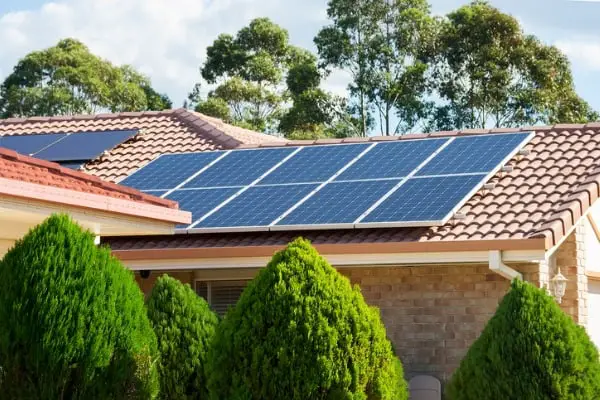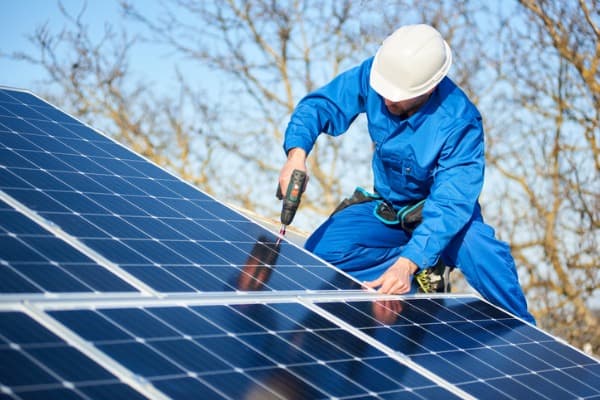
Though solar panel systems have become increasingly popular in recent years, it can be difficult to find reliable sources to learn all the details about installing a new system for your home or business.
The benefits of solar power systems are numerous and include reducing your carbon footprint, achieving better cost-efficiency, and requiring little maintenance.
Understanding the relevant factors before you install solar panels will help you avoid costly mistakes and unpleasant surprises.
We’ve compiled a list of 7 key factors to consider before buying a solar power system that will help you decide if solar panels are right for you.
Quick Navigation
1. Roof Suitability
Your roof is where the solar panels will be installed and it is crucial to know whether it can support the weight of the whole system. You must ensure that your roof is in a good condition. If it needs renovations, don’t install a single tile before the renovations are complete. If you know that your roof will need repairs and renovations within 4 or 5 years, it is better to do the repairs first as renovating the roof while solar panels are installed can be more difficult and costly.
Keep in mind the size of your roof; if it is small, it may not be worth installing a solar power system as you won’t get as much return on your investment.
2. Leasing or Buying
When you decide to install solar panels, you have two choices regarding payment options.
Either you will buy the system upfront without worrying about monthly payments, or you will lease the system from a company that requires little to no money to install the panels, but you will pay them a rate for the electricity.
Buying the system allows you to keep saving for as long as you own it and you can also regain some of the money you paid upfront in the form of rebates and other incentives.
On the other hand, leasing requires you to pay less initially but the system is still owned by the company and you will have to continue paying for the electricity you use.
3. On-Grid or Off-Grid
Another factor you need to consider before installing solar panels is whether you will be connected to the grid, like most homes, or have an off-grid system to store the energy in batteries.
There are a lot of logistics you need to consider beforehand if you want to connect to the grid. You need to know if there are any fees to get connected to the grid, the amount of time it will take to hook your system up to the grid, and whether you will have net metering (learn more) which is an incentive that reimburses you for the excess energy your panels produce. Off-grid systems, on the other hand, store any energy they produce in batteries.
This will increase the cost of installing solar panels as you need extra batteries with enough storage to store all the energy produced so you can use them whenever you want.
4. Selling Your Property
Installing a solar power system is a long-term investment as these systems can work for 20-25 years or longer.
If you plan to own your house for this amount of time, then installing solar panels could pay dividends in the long run.
If you expect to move shortly, however, then wait to install the system in your new residence.
Some people are not sure where they will be after 20 years, but that shouldn’t necessarily stop them from getting a solar power system as it will increase the selling price of any property. For example, if you are looking at a house with Tesla Solar Roof tiles (learn more), its value will be higher than a house without any solar panels installed by around $15,000. Virtually any buyer will be interested in owning a home with a solar power system for all its obvious benefits.
5. Choosing the Right Installer
You need to make sure that the company installing your solar panels is trustworthy and experienced.
The first thing to look for when choosing an installer is their credentials; they should have the right certificates that prove they are experts when it comes to solar panel installation.
To ensure that they do their job efficiently, you need to read reviews about the company you are considering.
Reading about past client’s experiences will give you insight into what to expect of a company.
6. Solar Technology
There are two main solar technologies that you can choose from; photovoltaic and thermal. Photovoltaic technology turns sunlight into electricity and it is the technology most commonly used in solar power systems. In contrast, thermal technology heats water and air using the power of sunlight. You may need a thermal solar power system if you live somewhere cold where heating fuel is more expensive than electricity.
If not, photovoltaic technology is the better choice for your house or business.
7. The Contract

Before you put pen to paper, read the contract carefully as it can make or break your whole experience.
The main items you need to look for in a contract are performance, financing, and ownership expectations to know what to expect from the company you are dealing with.
Ensure that the contract includes details about the warranty so you won’t be left on your own if your system stops working.
Some companies collect data on the electricity usage of their solar panels; if you are not comfortable with this process, make sure that’s specified in the contract.
Installing rooftop solar panels can improve the quality of your life considerably. The important thing is to not rush into buying a system before knowing if it is the right move for you at this moment.
Check the condition of your roof, how much weight it can support, and if it is big enough for a solar power system.
Your finances will determine whether you will lease or buy the system and whether it will be on or off the grid.
In any case, rooftop solar panels are a good investment that can save you money on energy bills and boost the value of your home.
